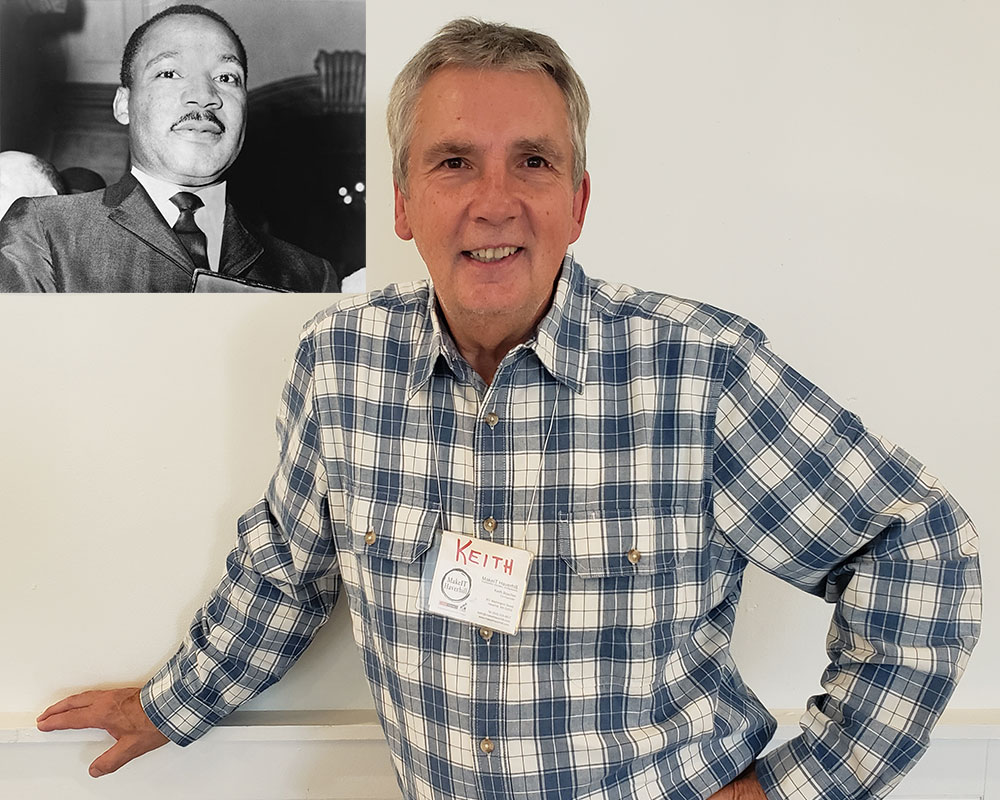This week’s observance of Dr. Martin Luther King Jr. Day brought back memories for some and reinstilled long held values motivated by the slain civil rights leader.
Among them, Keith Boucher, founder of MakeIt Haverhill, who first became aware the concept of equity when he was a child.
“When I was young, back in the early 60s, we used to eat a lot of grapes during the summer, I don’t know why, but my mother, one time just said we can’t have grapes. We said ‘Why, where are the grapes?’ She said because there’s a gentleman out in California, Cesar Chavez, who is organizing people because they aren’t getting paid enough to pick those grapes, so we are going to support those people. And, that just started for me the whole issue of diversity, equity and inclusion that everybody has the right to a decent wage and a decent life, so that’s kind of how we got started,” he told WHAV listeners.
Boucher was a recent guest on WHAV’s “Win for Breakfast” program, and said that as a member of the Good Shepherd United Methodist Church in Haverhill, he enjoyed a “distant” connection to King through another member of the church who used to live Boston as a child.
“She, back in the early to mid-50s, her family used to entertain Dr. King while he was getting his Phd., used to come over to eat, just being a poor student at the time. She said she could barely remember, being three, four or five years old at the time, but she said ‘Yeah, he used to come to our house.’ I said ‘Wow. Can I shake your hand?’ Just another connection to Dr. King.”
Boucher also made several trips to Haiti follow the earthquake in 2010. In 2014, on a mission trip to South Africa, sponsored by a Methodist Church in Washington, D.C., that was given $100 by Abraham Lincoln to buy the land for the church, Boucher roomed with a 90-year-old pastor, whose grandfather had been a slave, and shared those stories. He was also able to visit Robben Island, where Nelson Mandela was imprisoned for 18 years. He described Mandela’s cell.
“It was very small, very dim. To think about how many years, maybe 25 or more. To think that somebody of that intellect, and somebody that forward thinking and just willing to put his life on hold all those times. I don’t even have words for it.”
Mandela later became South Africa’s first Black president, after spending nearly 30 years in prison after being convicted of plotting to overthrow South Africa’s racist apartheid system.
Besides WHAV.net, WHAV’s “Merrimack Valley Newsmakers” podcasts are available via Apple Podcasts, Amazon Music, Spotify, iHeart Radio, Google Podcasts, TuneIn and Alexa.

